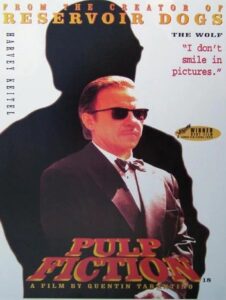Quentin Tarantino made headlines recently when he sold 1.1mm dollars in NFTs from iconic film, Pulp Fiction, despite efforts by Miramax to stop him in court. Miramax alleges the film auteur made a “money grab,” for the sales while the director asserts that he is working within his “reserved rights,” under his contract with the company, a copy of which we understand was filed as an exhibit (and was not redacted for confidential information) in the complaint filed by Miramax last fall. A writer might reserve rights in a literary work that is being sold under a purchase agreement or an option and purchase to produce a motion picture based upon the work; typically those reserved rights are print publication (more books), dramatic stage rights (theatre), and radio.
If a screenwriter produces work under contract as made for hire, which is common, or sells a script in first draft to a movie studio, then it is less common to see the writer bargain for reserved rights in a dramatic (as opposed to a literary work, which presumably has a prior audience), unless that writer had a lawyer with amazing foresight. If rights are indeed reserved to Quentin Tarantino, then it seems the controversy hinges upon interpretation of “print publication,” whereby a book (or literature) publishes in electronic format (NFT). Therefore, it is not so much an argument of how technology has shaped and altered the delivery format (i.e. electronic) but the nature in which it is consumed (e.g. audio only, as one would read an audio book or commentary).




